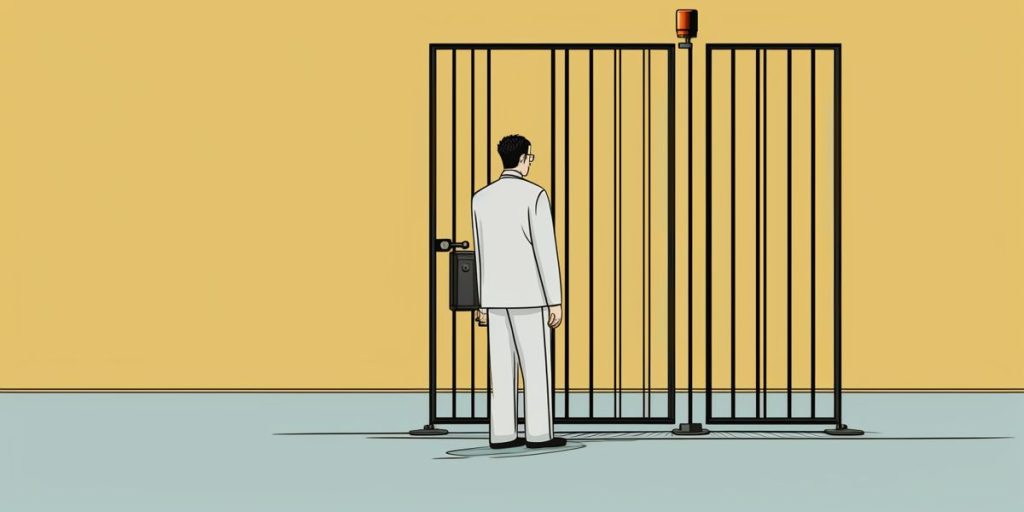State doctors are at odds with Gesy insurance over occupational insurance coverage, threatening not to re-file their professional licenses, which would impede their access to the Gesy database for ordering tests and prescribing medication. The dispute highlights a larger issue in healthcare and could lead to delays in medical procedures and a decline in patient care if not resolved promptly.
What is the core issue behind the standoff between state doctors and Gesy insurance?
State doctors are in a standoff with Gesy insurance due to a dispute over occupational insurance coverage. They threaten not to re-file their professional licenses, which is essential for accessing the Gesy database to order tests and prescribe medication, as a strategic move to secure their legal right to occupational insurance.
The Looming Crisis in Healthcare Access
At the heart of the healthcare system lies the general healthcare system, commonly referred to as Gesy. However, a potential paralysis looms over government hospitals as doctors, integral to the system’s functionality, may soon find themselves without access to crucial medical software. The issue at hand stems from a dispute over occupational insurance, with the state doctors’ union, Pasyki, urging members to take a stand by not re-filing their professional licenses in the upcoming year.
The annual re-filing is more than a mere formality; it’s a gateway to the Gesy database, which doctors utilize to order tests and prescribe medication. Without re-filing, doctors are essentially locked out, unable to perform these essential tasks. The move to boycott the filing process for 2024 is a strategic push against the state health services organisation (Okypy) to secure the much-demanded occupational insurance coverage, which the doctors claim is both a legal right and a professional necessity.
The Struggle for Occupational Insurance
The friction between the doctors and Okypy is not new. A 24-hour strike had already taken place in May over this unresolved issue. Following the strike, there was a temporary fix, with promises from Okypy for a permanent resolution by December. As the year’s end approaches, the situation remains uncertain, with Pasyki head Sotiris Koumas expressing concerns. He highlights the anomaly that after five years of Gesy, public sector doctors still lack insurance coverage.
Occupational insurance is critical for doctors as it safeguards their practice and personal livelihood. It insures them against potential work-related risks, including legal action from malpractice suits and workplace injuries. The absence of this insurance puts doctors in a precarious position, with their professional stability hanging in the balance.
An Impasse with Far-Reaching Implications
Should the deadlock persist into the new year, the implications could be widespread. Doctors will report for duty, yet they’ll be incapacitated in their ability to serve patients fully. This could lead to significant delays in medical procedures and a decline in the efficiency of patient care. The potential boycott serves as a siren call for a rapid resolution to prevent the ripple effect that could ensue within the healthcare system.
The situation underscores a broader issue within the healthcare sector – the balance between administrative policies and the welfare of medical professionals. The outcome of this dispute will set a precedent not only for the current crisis but for future negotiations between healthcare providers and administrative bodies.
The Countdown to a Solution
Time is of the essence, and all eyes are on the negotiations between the state doctors and Okypy. As the new year inches closer, the hope for a swift and fair resolution hangs in a delicate balance. The medical community, along with the patients they serve, awaits an outcome that will ensure the continuous provision of quality healthcare services.
For now, the healthcare system teeters on the brink of a potential crisis. The upcoming weeks are critical as they may dictate the operational capability of government hospitals and the accessibility of medical services for the public. The call for occupational insurance is clear, and the ball is in the court of the state health services organisation to deliver a solution that upholds the rights of its doctors and the health of its citizens.
1. What is the core issue behind the standoff between state doctors and Gesy insurance?
The core issue behind the standoff is a dispute over occupational insurance coverage. State doctors are threatening not to re-file their professional licenses, which would impede their access to the Gesy database for ordering tests and prescribing medication. They are taking this strategic action to secure their legal right to occupational insurance.
2. Why is the re-filing of professional licenses important for state doctors?
The re-filing of professional licenses is important for state doctors because it grants them access to the Gesy database. This database is crucial for doctors to order tests and prescribe medication. Without re-filing their licenses, doctors will be locked out of the database and unable to perform these essential tasks.
3. Why is occupational insurance coverage important for doctors?
Occupational insurance coverage is important for doctors as it safeguards their practice and personal livelihood. It provides protection against potential work-related risks, including legal action from malpractice suits and workplace injuries. The absence of this insurance puts doctors in a precarious position, with their professional stability at risk.
4. What are the potential implications if the standoff between state doctors and Gesy insurance continues?
If the standoff continues, it could have widespread implications. Doctors will still report for duty, but they will be unable to fully serve patients. This could lead to significant delays in medical procedures and a decline in the efficiency of patient care. The potential boycott by state doctors highlights the urgency for a rapid resolution to prevent disruptions in the healthcare system.

